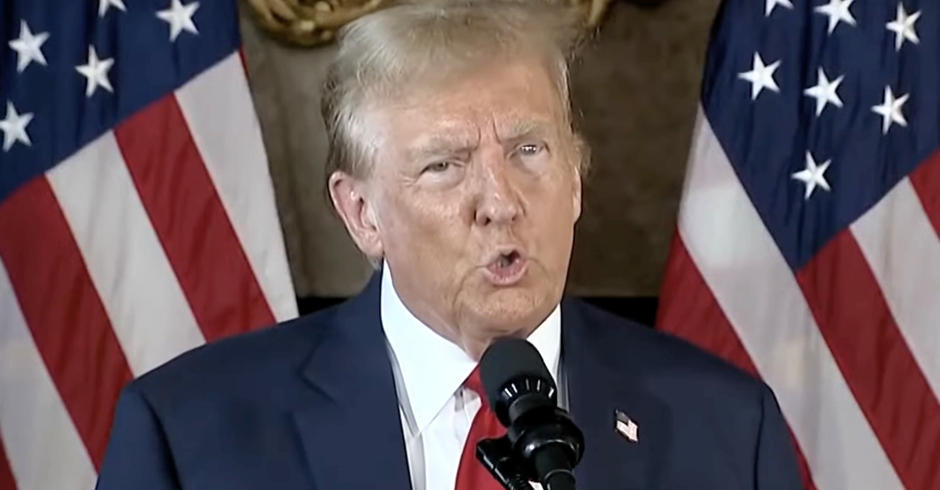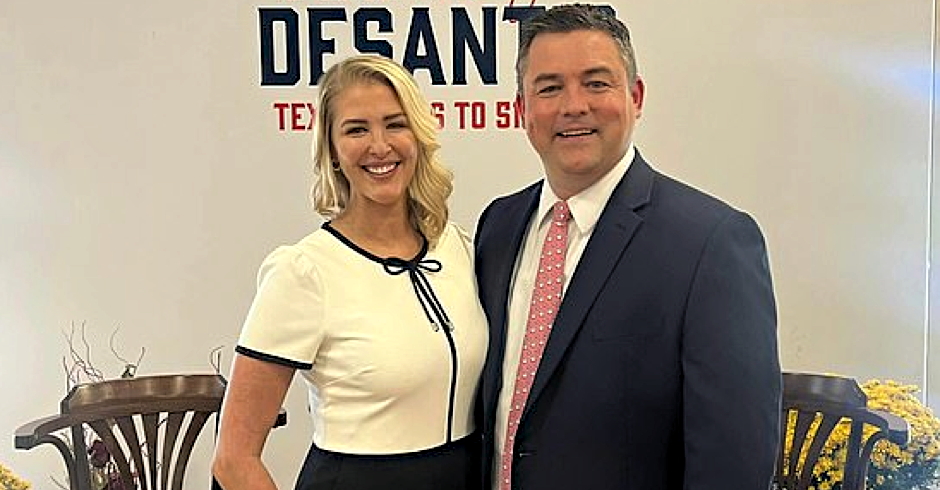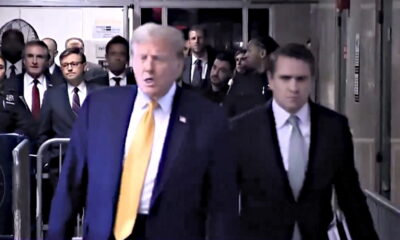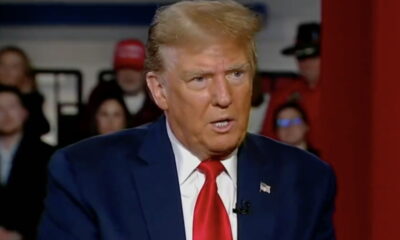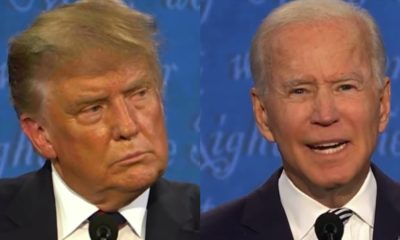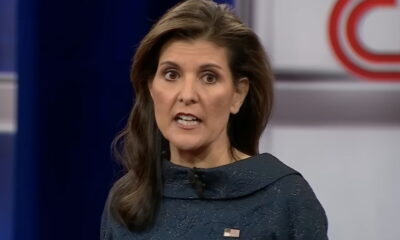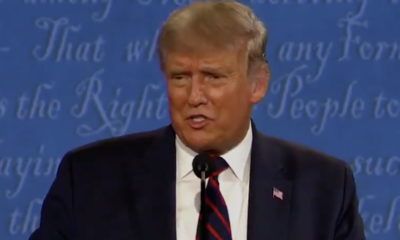25 Years Later, International AIDS Conference Returns To U.S. After Lift Of HIV Travel Ban
Back in June 1990, thousands of people from around the world convened in San Francisco for the Sixth International AIDS Conference. Based at the city’s Marriott Hotel, the conference included several days of panels, discussions, and speeches. It was the third time the conference, the premier international event focused on the AIDS epidemic, had been held in the United States—and it would be the last time for more than 20 years. Indeed, when the conference meets in Washington, D.C. next week, on July 22, it will mark the event’s return to U.S. soil after an enforced hiatus. The story of how this hiatus came about is the story of how a group of health organizations and activists, including hundreds who protested at the San Francisco conference, helped to embarrass and punish the United States for so long as it failed to overturn long-standing, discriminatory policies directed at people living with HIV. The particular policies in question were immigration restrictions, otherwise known collectively as the “HIV travel ban.†First imposed in 1987 thanks to a bill sponsored by U.S. Senator Jesse Helms (R-NC), these restrictions barred HIV-positive individuals from obtaining tourist visas or permanent residence in the U.S. without disclosing their status and then receiving special permission to enter the country. In 1989, on the basis of the travel ban, Hans Paul Verhoef, a Dutch AIDS educator, was detained at a Minnesota airport and held for five days after AZT was found in his luggage. It became clear that the same could happen to many people planning to attend the International AIDS Conference in San Francisco, so the Red Cross, World Health Organization, several foreign countries’ health ministries, and other organizations began lobbying the U.S. government to change the law. They threatened to boycott the conference if their demands were not met. The best they got, however, was the announcement in April 1990, two months before the conference, that the government would offer a special 10-day visa that would allow people attending conferences “in the public interest†to travel in the U.S. without having to disclose their HIV status. Generally speaking, however, HIV would remain on a list of “excludable†diseases until Congress moved to negate Helms’s successful bill.
To many organizations and activists, this was an insufficient response. Some decided to proceed with boycotting the conference—but others orchestrated protests at the event. As with many AIDS-related protests at the time, ACT UP, the powerful activist organization founded in New York in 1987, was at the forefront of these demonstrations. ACT UP members traveled from around the country to San Francisco with a protest agenda, teaming up with the Bay City’s chapter of the organization. (In addition to a change in immigration policy, ACT UP demanded better access to HIV drugs, more money for research, and other improvements to the domestic fight against AIDS.) The San Francisco chapter produced a handbook for the event that included information about planned demonstrations and diagrams of the Marriott hotel. The handbook also instructed people on what to do if arrested, something that often happened during ACT UP protests:
“Be sure somebody has your full name—yell it out. We can’t find you in jail if we don’t know your name.â€
The most visible protest at the conference came during a speech delivered by Louis Sullivan, the U.S. Secretary of Health and Human Services. According to an account in the Wall Street Journal, ACT UP members entered the room shouting “shame.†Sullivan was then “showered by paper missiles†and “went almost completely unheard†because of the “shrieking of whistles and airhorns.†The New York Times reported, “Sullivan’s words were intelligible only because the woman standing next to him interpreted his remarks in sign language for the deaf.†The protesters were joined by some attendees at the conference, including speakers and scientists who wore red armbands in protest of the travel ban and some who offered their access passes to the activists so that they could infiltrate the event more easily. They also found an ally in Lars Kalling, the president of the International AIDS Society (IAS), which organized the conference. “How can we expect the private person to behave in a rational and responsible way . . . when states set a bad example by instituting irrational laws towards HIV-infected people?,†Kalling said to the room just before Sullivan’s speech. The San Francisco protests were successful insofar as they brought heightened attention to the travel ban. Yet the immigration restrictions remained in place, and so activists and many in the global AIDS research community continued their battle. But they had a new goal: Rather than boycotting or heckling the event, they were determined to prevent another International AIDS Conference from taking place in the U.S. until the immigration restrictions were lifted. That meant advocating against the plan to hold the conference in Boston in 1992.
https://youtube.com/watch?v=H3zefhq9Ql4
ACT UP was again very visible and vocal. In San Francisco, an Immigration Working Group was formed to fight the travel ban. At the 1991 international conference, which was held in Florence, ACT UP members who had traveled to Italy for the event issued a statement that said, in no uncertain terms:
“THE CONFERENCE CAN BE MOVED. THE CONFERENCE MUST BE MOVED!!! … If the organizers of next year’s conference and if the Board of Directors of Harvard University [which was helping plan the event] attempt to hold this conference in Boston, or any other city in the United States of America, while these discriminatory laws stand against those of us infected with HIV, we’ll give them a Tea Party they’ll never forget!â€
At the close of the Florence conference, Max Essex, a virologist at Harvard, told those gathered that the threats to disrupt or prevent the conference in Boston were misguided. “I am grieved that the crass, domestic, American political agenda and the ultimatums I have received from activists have conspired in a bizarre alliance to deny the free exchange of information necessary to fight AIDS,†he said, according to The Washington Post. And yet, organizers of the conference acknowledged that, given pressure from activists, if the U.S. government did not lift the travel ban, the Boston event would likely be canceled. Late that summer, the first Bush administration announced it would revise the travel ban to permit some limited entry into the U.S. Again, however, this was deemed an inadequate response to the demands for change. On August 16, conference organizers formally announced that the event would not be held in Boston. “Up until the last moment, there was great hope that the travel restrictions might change and it might be possible to hold the meeting in Boston,†said James Mann, a professor of epidemiology at Harvard’s school of public health, according to The Washington Post. “But we could no longer afford to be held hostage to uncertainty.†President George H.W. Bush responded to the decision by reaffirming his commitment to the travel ban: “That policy is a good, sound policy. The American people, I think, are supportive of it.†The activism regarding the 1992 conference did not end there, however. Indeed, the travel ban remained in place, so the event, which was relocated to Amsterdam, provided a symbolic stage on which to again condemn the U.S. ACT UP recognized this, and so Tomás Fábregas, a HIV-positive Spanish citizen living in the United States and a member of the Immigration Working Group in San Francisco, defied the travel ban by going to Amsterdam for the conference, hosting a press event (with special guest Elizabeth Taylor), publicly daring the U.S. government to arrest him, and then returning to San Francisco. There, he was greeted by supporters and the media. Rather than endure protests and further media scrutiny, authorities allowed Fábregas into the country. In the eyes of many, it was another victory in the long fight to remove the travel ban. Perhaps the most notable victory for activists at this time, however, was the decision by the IAS to institute a formal policy that would indefinitely prevent the international conference from being held in the U.S. In 1992, the organization’s governing body agreed to prohibit the conference from being held anywhere that, according to the body’s own language, “restrict[s] short-term entry of people living with HIV and AIDS, and/or require prospective HIV-positive visitors to declare their HIV status on visa application forms or other documentation required for entry into the country.†The policy was a slap in the face of the U.S., and it would ultimately prove a public and embarrassing reminder over the next 17 years of the country’s discriminatory policies. The sad reality, of course, is that this reminder lasted so long because the U.S. did not finally lift the HIV travel ban until 2009. At that point, it was one of only a dozen countries that still imposed a ban, finding itself in the company of Iran, Saudi Arabia, Libya, and Sudan. At the time of its removal, President Barack Obama called the initiation of the restrictions more than two decades prior “a decision rooted in fear rather than fact.†Yet that it took the U.S. so long to reverse the ban does not discount the activist efforts surrounding the San Francisco and Boston conferences in the early 1990s. The demonstrations, letters, and speeches issued, as well as the final decision by the IAS to prevent the conference from taking place in the U.S., were early and loud signals of what would and would not be tolerated by the scientific, public health, and LGBT communities in the fight against AIDS. In other words, while there is reason to celebrate the return of the International AIDS Conference to the United States this week, there is also reason to appreciate its long absence. Research for this article was conducted in part at the Yale archives. Image, top, via Facebook  Seyward Darby is a freelance writer currently living in Kosovo. She is working for a local human rights group on LGBT and freedom of expression projects with support from the Coca-Cola World Fund and Kirby-Simon Fellowship Program at Yale University. Her organization receives some funding from the U.S. government.Â
Seyward Darby is a freelance writer currently living in Kosovo. She is working for a local human rights group on LGBT and freedom of expression projects with support from the Coca-Cola World Fund and Kirby-Simon Fellowship Program at Yale University. Her organization receives some funding from the U.S. government.Â

Enjoy this piece?
… then let us make a small request. The New Civil Rights Movement depends on readers like you to meet our ongoing expenses and continue producing quality progressive journalism. Three Silicon Valley giants consume 70 percent of all online advertising dollars, so we need your help to continue doing what we do.
NCRM is independent. You won’t find mainstream media bias here. From unflinching coverage of religious extremism, to spotlighting efforts to roll back our rights, NCRM continues to speak truth to power. America needs independent voices like NCRM to be sure no one is forgotten.
Every reader contribution, whatever the amount, makes a tremendous difference. Help ensure NCRM remains independent long into the future. Support progressive journalism with a one-time contribution to NCRM, or click here to become a subscriber. Thank you. Click here to donate by check.
 |
